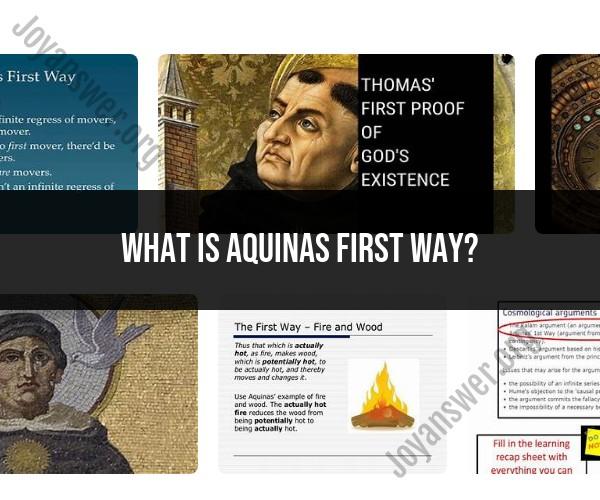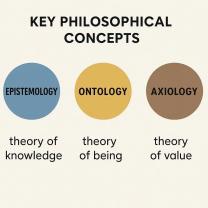What is Aquinas first way?
Aquinas' First Way is one of the five arguments for the existence of God presented by the medieval philosopher and theologian Thomas Aquinas. It is part of his larger work, "Summa Theologica," and is often referred to as the Cosmological Argument. Let's explore the foundations of Aquinas' First Way:
1. Principle of Motion:Aquinas' argument is based on the observation that objects in the world are in motion. He asserts that everything in motion is moved by something else. In other words, nothing can move itself; it requires an external force to initiate its motion.
2. Unmoved Mover:Aquinas then introduces the concept of an "Unmoved Mover," which is a being that is itself unmoved but is the cause of the motion in other things. This Unmoved Mover is necessary to explain the chain of motion observed in the universe.
3. Infinite Regression:Aquinas argues against the possibility of an infinite regression of movers. If there were an infinite chain of movers, there would be no ultimate cause of motion, and the entire process of motion would be baseless.
4. Necessary Being:Aquinas concludes that there must be a First Mover, an Unmoved Mover, which is itself unmoved and does not depend on any other mover. This First Mover is identified with God, a necessary being that imparts motion to everything else without being moved itself.
Significance of Aquinas' First Way:Aquinas' First Way is significant for several reasons:
Causality and Explanation: The argument addresses the fundamental question of causality and provides an explanation for the existence of motion and change in the universe.
Existence of God: The First Way is a foundational element of Aquinas' larger project to demonstrate the existence of God through reason and philosophical inquiry.
Integration of Faith and Reason: Aquinas sought to reconcile faith and reason, showing that philosophical arguments could support theological beliefs.
Influence on Philosophy and Theology: Aquinas' arguments have had a profound influence on both philosophy and theology, shaping discussions about the nature of God and the relationship between faith and reason.
Debate and Critique: The First Way has sparked debates and critiques among philosophers and theologians throughout history, leading to further exploration of the Cosmological Argument and its implications.
It's important to note that Aquinas' First Way is just one of his Five Ways and is part of a broader philosophical exploration. While the argument has been discussed and debated for centuries, it remains a significant contribution to the ongoing discourse on the existence of God and the nature of the universe.












